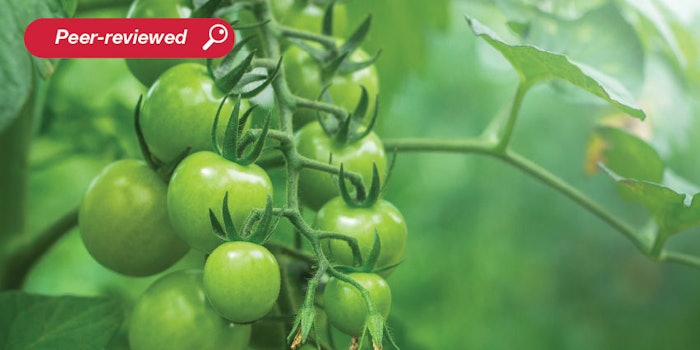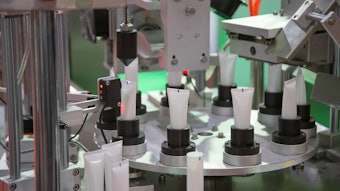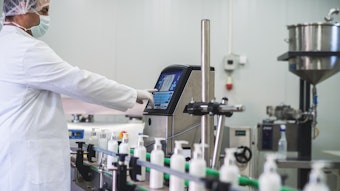
The trend and consumer preference for natural, more sustainable cosmetic products continues to increase. In parallel, the convergence of food and skin care has been a major trend in recent years.1 Natural actives derived from foods therefore offer a solution and are already incorporated into products and marketed for several benefits in the skin, especially in terms of their antioxidant activity.2 Indeed, the use of antioxidants in artisanal natural soaps for product stability and skin benefits has been a recent market trend but limited data regarding antioxidant potential in soaps is available.
The present work proposes the formulation of a natural soap supplemented with an antioxidant extract obtained from green, unripe tomatoes discarded by the food industry. The extract is rich in α-tomatine, a glycoalkaloid present in the unripe fruits. An environmentally friendly technique was developed using subcritical water to extract the α-tomatine.
Besides extraction, greener approaches for the production of soaps, without chemical additives, supports a greater respect for the environment and are in line with the objectives of sustainable development.3 As such, the ingredient was incorporated into a soap formula using so-called cold processing.4
The α-tomatine soap was characterized and its properties were compared with those of a commercial antioxidant-enriched soap. The extraction, production and characterization of the α-tomatine soap are detailed here. Results suggest the upcycled material holds potential as a novel ingredient for natural soap applications, and that further research is warranted.
Read the full article in the June digital edition of C&T magazine.References
- Faria-Silva, C., Ascenso, A., Costa, A.M., Marto, J., Carvalheiro, M., Ribeiro, H.M. and Simões, S. (2020) Feeding the skin: A new trend in food and cosmetics convergence. Trends Food Sci Technol. 95 21-32.
- Rambabu, K., Edathil, A.A., … Banat, F., et al. (2020) Date-fruit syrup waste extract as a natural additive for soap production with enhanced antioxidant and antibacterial activity. Environ Technol Innov. 20 101153.
- Atolani, O., Adamu, N., … Olatunji, G.A., et al. (2020). Chemical characterization, antioxidant, cytotoxicity, anti-Toxoplasma gondii and antimicrobial potentials of the Citrus sinensis seed oil for sustainable cosmeceutical production. Heliyon. 6(2) e03399.
- Prieto Vidal, N., Adeseun Adigun, O., Thomas, R.H., et al. (2018). The effects of cold saponification on the unsaponified fatty acid composition and sensory perception of commercial natural herbal soaps. Molecules. 23(9) 2356.











